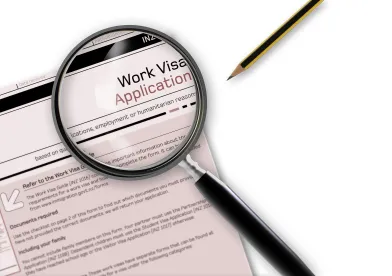Businesses across industries are reducing their workforces and implementing hiring freezes amid increasing labor costs and fears of slower economic growth. In fact, reports suggest that tens of thousands of workers could be looking for new jobs in 2023 following announced layoffs and job cuts at several major companies across the United States. Many of these companies have come to rely on talented foreign workers to fill domestic shortages of highly-skilled workers.
While implementing a reduction in force (RIF) triggers several legal considerations for employers, notably potential obligations under the federal Worker Adjustment and Retraining Notification (WARN) Act, a RIF impacting foreign workers brings additional challenges. Foreign workers included in a RIF could face complications with their immigration statuses that could mean they have to return to their home countries. Employers may further be unable to rehire valuable foreign workers following a RIF should the business outlook change.
Below are several immigration issues that employers may want to consider in designing a RIF strategy.
-
Visa and Departure Options
When discharging foreign workers in the United States who are in E-3, H-1B, H-2B, P and O statuses, which are tied to employment in the United States, as part of a RIF, employers may be obligated to offer to cover the reasonable cost for the workers to travel back to their home countries. However, if employees decline such offers, their employers are no longer obligated to cover their travel costs.
Foreign workers in the United States in E-1, E-2, E-3, H-1B, H-1B1, L-1, O-1 or TN classifications may be entitled to a grace period of up to 60 days following a termination, during which they may seek new employment, file to change to a different immigration status, or prepare for a departure. Workers are entitled to one grace period of 60 calendar days per authorized period of stay following the cessation of employment or until the end of the authorized period of stay, whichever is shorter.
-
Concerns with Green Card Processing
A RIF could impact the permanent residency (green card) process for employees who remain with a company. A green card, officially known as a Permanent Resident Card, allows a foreign citizen to live and work in the United States and may be based on employment in the United States. One way employers can sponsor employees for a green card is through a program electronic review management (PERM) labor certification. This process requires employers to actively recruit for the sponsored position and only if no qualified U.S. workers are found, the employer may sponsor the foreign national employee for a green card. A U.S. worker includes a U.S. citizen, lawful permanent resident, asylee and refugee. If there are any layoffs in the area of intended employment in the same or a similar occupation for which the labor certification is sought, the employer must notify and consider all potentially qualified U.S. workers of the job opportunity.
Ultimately, if there are U.S. workers qualified for the role for which the PERM labor certification is being filed, then employers may not be able to go forward with filing.
-
Reductions in Pay
In tough economic times, employers may consider furloughs or pay reductions as alternatives to layoffs. However, employers may not be able to furlough or reduce the pay of foreign workers in the United States in H-1B, H-1B1, and E-3 statuses if the reductions in pay reduce the salary below the required prevailing wage or below the actual wage, which is the wage paid to other similarly situated workers. When employers file a labor condition application (LCA) as part of the H-1B, H-1B1 and E-3 process, it sets the terms of employment. If an employer makes a material change to those terms and conditions, then the employer may have to file a new LCA and may have to notify USCIS before implementing the changes.
Key Takeaways
Given the current uncertain economic conditions, employers may be considering RIFs or pay cuts as ways to reduce labor costs. Before implementing such a strategy, employers may want to assess the extent to which the planned RIF will impact its foreign workforce in the United States. A RIF might require employers pay for foreign workers to travel back to their home countries or could otherwise jeopardize their immigration statuses and complicate a potential rehire of the employee should business needs change.





 />i
/>i
